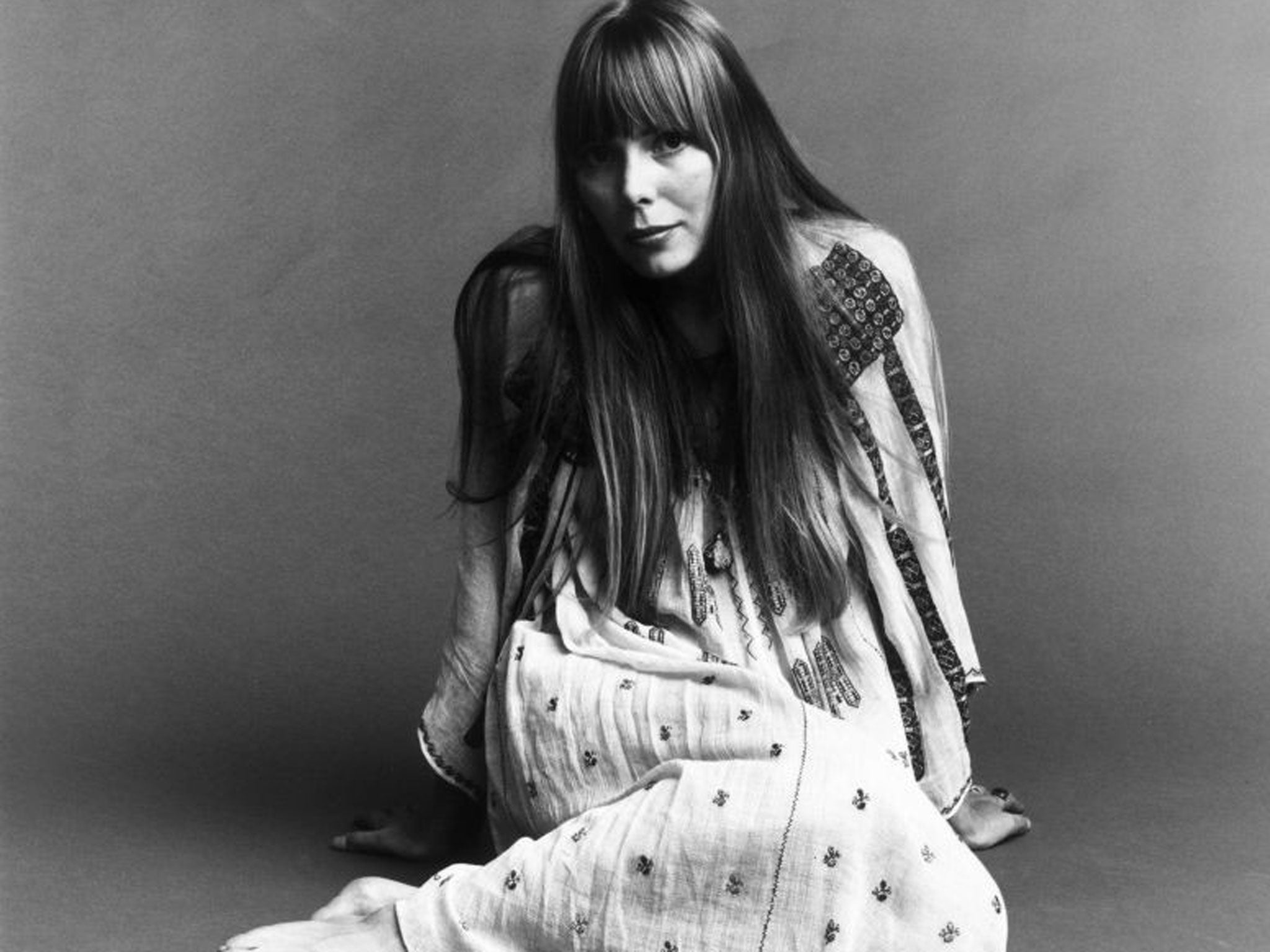The Independent's journalism is supported by our readers. When you purchase through links on our site, we may earn commission.
Joni Mitchell’s Blue: What critics have said about one of the greatest albums of all time
‘She mixed shades of sadness and wisdom into a palette of nerves and melody that does not feel unreasonable to call sacred’

Your support helps us to tell the story
From reproductive rights to climate change to Big Tech, The Independent is on the ground when the story is developing. Whether it's investigating the financials of Elon Musk's pro-Trump PAC or producing our latest documentary, 'The A Word', which shines a light on the American women fighting for reproductive rights, we know how important it is to parse out the facts from the messaging.
At such a critical moment in US history, we need reporters on the ground. Your donation allows us to keep sending journalists to speak to both sides of the story.
The Independent is trusted by Americans across the entire political spectrum. And unlike many other quality news outlets, we choose not to lock Americans out of our reporting and analysis with paywalls. We believe quality journalism should be available to everyone, paid for by those who can afford it.
Your support makes all the difference.Joni Mitchell’s peerless 1971 album Blue turns 50 today (22 June).
Artists including Martha Wainwright and Carole King, along with Mitchell’s many fans, are paying tribute to an album described by many as one of the greatest of all time, a “perfect” record.
While some albums are reassessed and find new appreciation over time, Blue was adored immediately upon its release and has continued to be celebrated through the years.
In 2000, The New York Times picked it as one of 25 records that represented “turning points and pinnacles in 20th-century popular music”.
“A restless woman travels, falls in love and longs for what she left behind as she moves on; in the background 1960s ideals crumble. Joni Mitchell turned unsparing autobiography into sparse songs that quietly rejected symmetry and happy endings while they poured out her yearning,” the article observed
“As she ushered in a confessional mode for pop songwriting, few of her emulators noticed that her seemingly unguarded revelations were so finely constructed.”
“Joni came along when few women wrote their own songs,” Wainwright told The Guardian in a 50th anniversary feature published this week. “They were marginalised and surrounded by men, but she was never defined by that. Her songs are her own story – and she just happens to be a woman.
“’There was so much sadness around her relationships, but also freedom from them too. As if she’s saying, ‘I won’t let you destroy or hurt me. I will triumph in the end with my songwriting and my freedom.’”
Critic Robert Christgau gave the album an “A” in his Record Guide: Rock Albums of the Seventies, writing: “As Joni grooves with the easy-swinging elite-rock sound of California’s pop aristocrats, her relation to their (and her own) easy-swinging sexual ethic becomes more probing.
“But thoughtfulness isn’t exactly making her sisterly – I’ve even heard one woman complain she can’t sing Joni’s melodies any more. Well, too bad – they’re getting stronger all the time, just like the lyrics. From the eternal ebullience of “All I Want” to the month-after melancholy of “Blue”, this battlefront report on the fitful joys of buy-now pay-later love offers an exciting, scary glimpse of a woman in a man’s world.”
Enjoy unlimited access to 100 million ad-free songs and podcasts with Amazon Music
Sign up now for a 4 month free trial (3 months for non-Prime members)
Enjoy unlimited access to 100 million ad-free songs and podcasts with Amazon Music
Sign up now for a 4 month free trial (3 months for non-Prime members)
“Joni Mitchell does not live in the dark,” a Los Angeles Times piece published this year said. “She created illuminated pop literature, saying that to be lost — to ask difficult questions instead of dismissing them — is to be alive. She mixed shades of sadness and wisdom into a palette of nerves and melody that does not feel unreasonable to call sacred.”
In a piece for Mitchell’s 75th birthday in 2018,The Independent’s Graeme Ross wrote of Blue’s “A Case of You”, which he ranked as her greatest song: “I wonder how many poets and songwriters have wished that they could have written the lyrics to this transcendent proclamation of love since it first saw the light of day? What would they have given to come up with the line ‘Oh you are in my blood like holy wine’?
“How many souls would be sold for just a fraction of the talent that penned the song’s most memorable lines – ‘Oh I could drink a case of you darling / And I would still be on my feet’? Variously reported as being about Graham Nash (like several ofBlue’s songs), James Taylor (who contributed acoustic guitar to the track) and Leonard Cohen – in the end it doesn’t matter too much. “A Case of You”, Joni Mitchell’s greatest song, touches souls just like the love it describes.”
To celebrate the anniversary of Blue, Mitchell has released a new EP of demos and outtakes, including demos for “California” and an early version of “A Case of You” that features different lyrics from the final album version.
Join our commenting forum
Join thought-provoking conversations, follow other Independent readers and see their replies
Comments